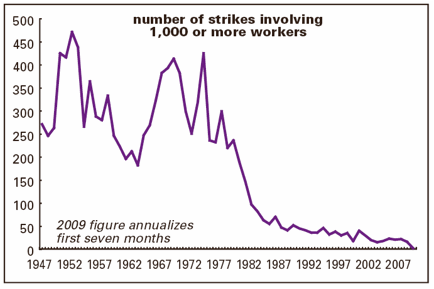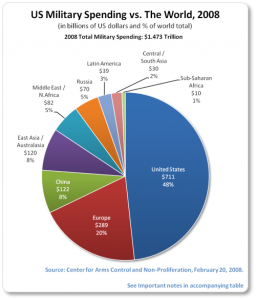Glenn Greenwald:
Last year, after I wrote critically about a well-known journalist who frequently appears on the TV and is considered “liberal,” he emailed me (after first asking me to agree that our conversation would be private) to warn that I should be more “careful” about attacking “allies” if I wanted to expand my platforms and get on television. That’s how the culture works. Those are the weapons which politicians — and journalists — use to try to punish those who criticize them and reward those who refrain from doing that.
This is the way the world works. I haven’t seen that it’s limited to journalists and politicians though.
It’s not just about attacking “allies”, though.
A gaffe is when you tell a truth that isn’t socially acceptable. There are a lot of those, including the truth about Obama, especially early in the year (he’s not a progressive, never has been and sells out liberal interests any time he can, and this has been clear for a long time.)
The truth about healthcare is that Obama and the Dem leadership just want to find a way to close the Medicare “D” loophole, and in exchange for being allowed to, they are offering a mandate. This is taxation by another name (being forced to buy a product you wouldn’t otherwise buy is just a tax), and a regressive tax at that, but Americans don’t want to be taxed directly so they are taxed indirectly.
It is also a crass sell out of Millennials. Old folks will get their “no recissions” and “guaranteed issue”, while youngsters will be forced to buy insurance they can’t afford to use (while at the same time the combination of first time home prices and tuition loans already have them crushed and have priced the lower and lower and middle class almost completely out of post-secondary education.)
As for the fundraising to reward public option people in the House, folks forget that money is fungible. Every dollar raised for them is a dollar more than party organs and fundraisers can, and will, spend on Blue Dogs. Why? Because most progressive Reps are not in swing districts, they don’t need a lot of money.
Another unpleasant truth is that the way the bailout is being paid for is simply another hidden tax. Banks are allowed to keep their bad loans on the books, and not write them down. They receive money at concessionary rates while they have increased the rates they lend out to consumers. Those increased rates lead to the money that will be used, over a decade or so, to pay down the bad loans. It’s done this way rather than just raising taxes, because Americans won’t pay taxes. And because doing it this way is regressive, instead of having, say, significant increases in progressive taxation, so that the rich pay for their own bailout (which is what should have been included in the first stimulus bill.)
Finally, on stimulus, the only effective stimulus that Obama is going to be able to get through going forward is military stimulus, and that’s why the Afghan war is not going to end any time soon. Obama had his chance to do it properly, at the beginning of his term, he chose to waste his capital on an ineffective tax cut and a dog’s breakfast of a stimulus bill which established no real direction for the economy, didn’t deal effectively with underlying economic weaknesses, and which failed to bail out the states properly. From now on, stimulus must be run through the Pentagon, since Blue Dogs and Republicans can’t vote against military spending.
I may discuss these issues at greater length later. Or I may not. Who knows. It’s pretty clear there’s little appetite for the truth, either at the elite level, at the blogging level, or at the popular level. People want to be told comforting lies and contrary to the old saying about how in the land of the blind the one eyed man is king, in the land of the blind, the one eyed man is very, very unwelcome. Getting things right, repeatedly, is exactly what most pundits avoid like the plague. Virtually every major pundit has been wrong about the majority of important issues, the majority of the time.
I guess that’s what people want.



 Well, now Matt Taibbi is saying it, maybe progressives will listen:
Well, now Matt Taibbi is saying it, maybe progressives will listen: